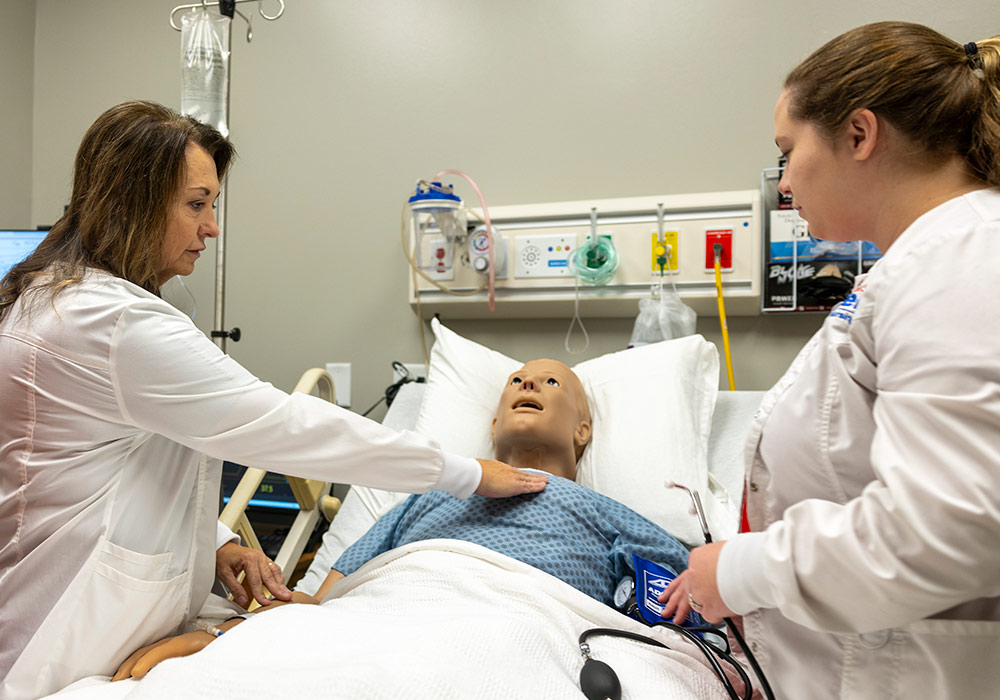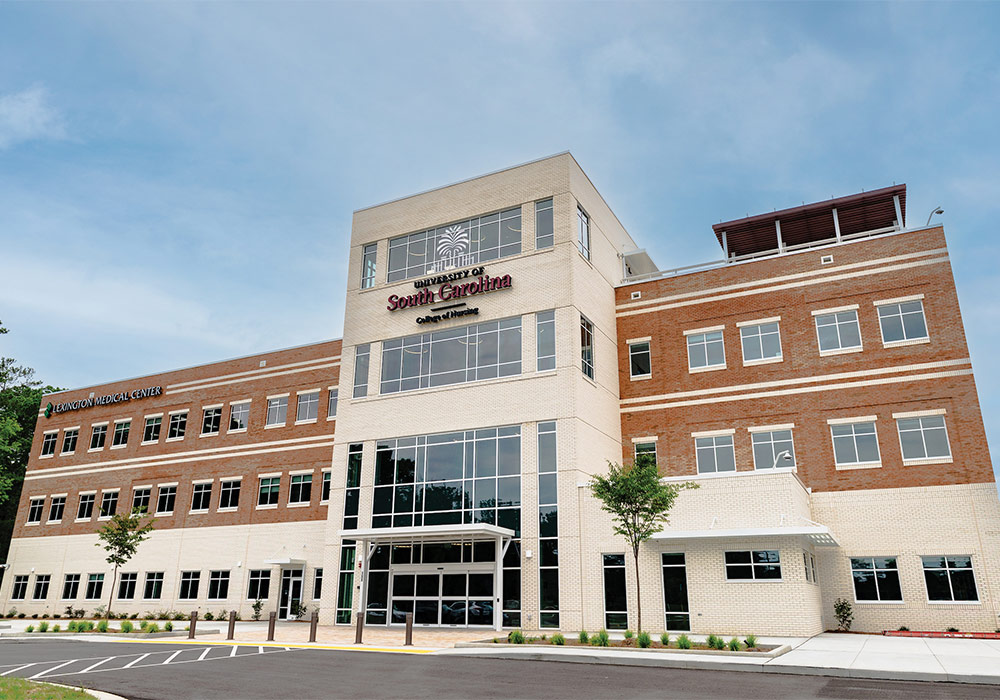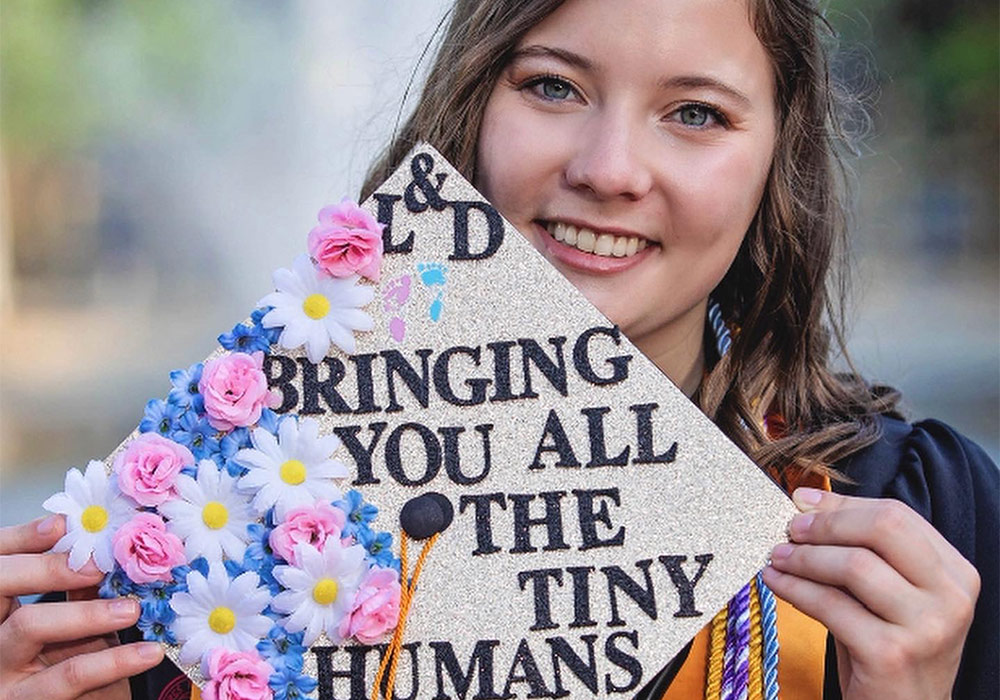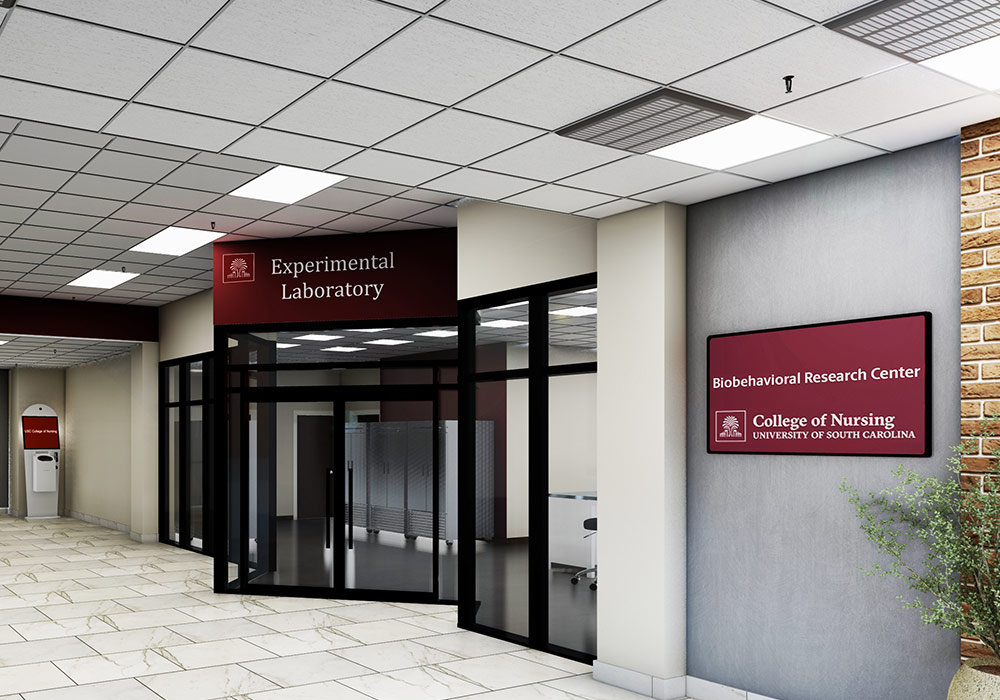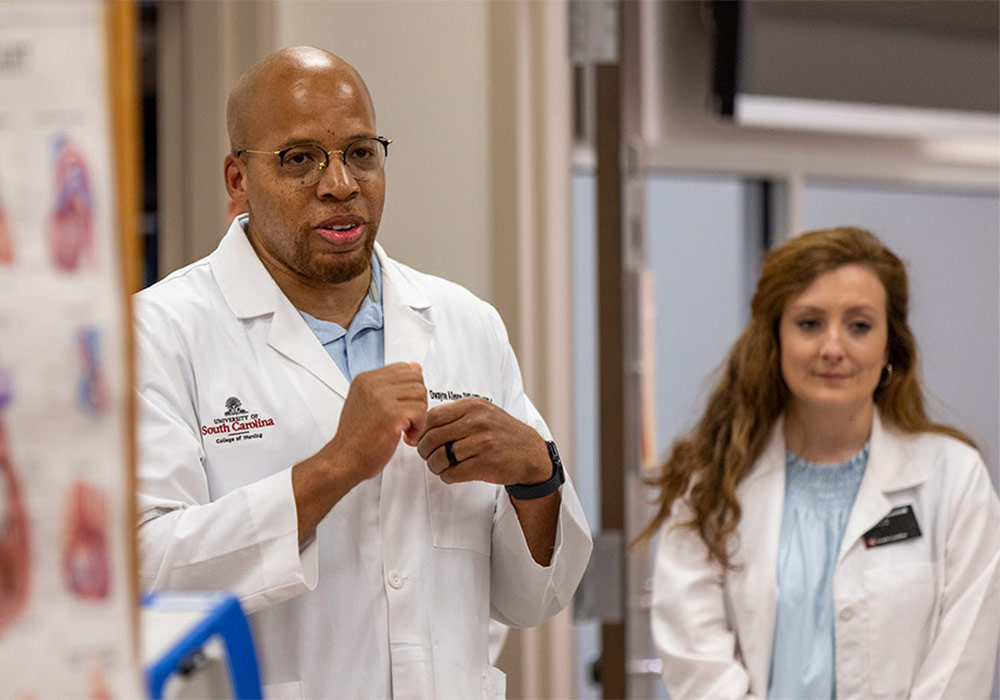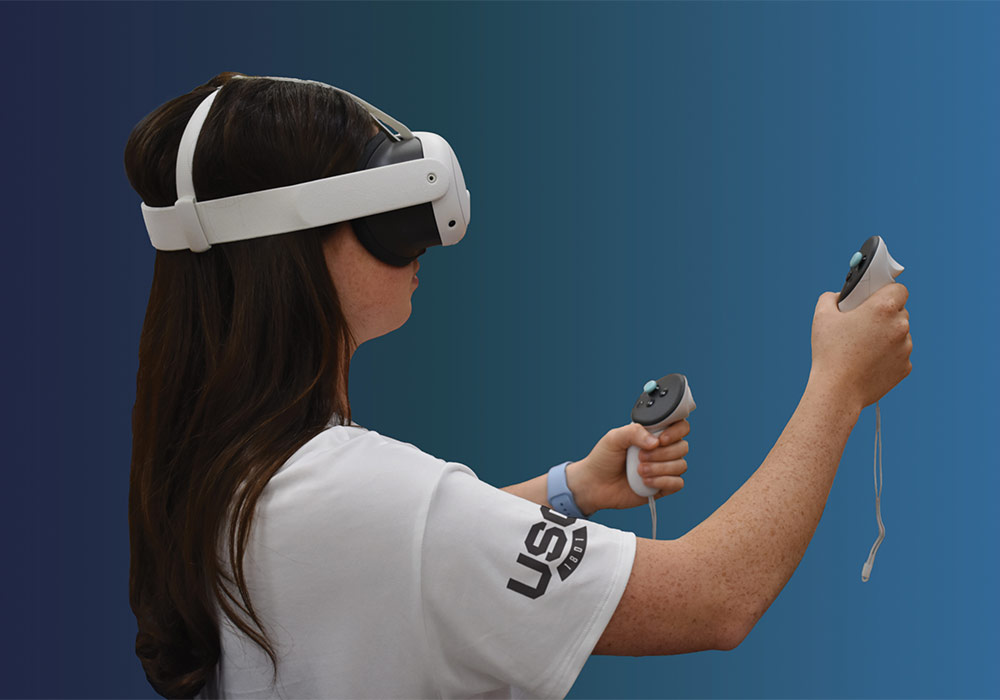Video loop of USC nursing students at work
There is no question nurses are an integral part of the state and nation’s health care system. There is also no doubt that nurses — working in hospitals, community centers, physician’s offices, schools and homes — are in short supply.
The need is especially acute in South Carolina, which is expected to have more than 10,000 nursing vacancies by 2030 and has one of the highest projected shortages in the country. It’s a shortage triggered by myriad causes, including stressful working conditions that lead to high turnover and the demands of caring for an aging population.
And it’s a need University of South Carolina College of Nursing is committed to addressing.
One example is the new 52,000-square-foot building on the campus of Lexington Medical Center that opened in August and will be used to train the next generation of nurses. The addition will help train and graduate 400 nurses per year in the Midlands within the next five years. That’s an 80 percent increase for the USC Columbia nursing program. Systemwide, the University of South Carolina awards nearly 900 nursing degrees per year.
And it’s not the only chapter in improving health care being written by USC’s College of Nursing.
The college’s undergraduate program ranks in the Top 10 percent nationally, its online graduate program is ranked No. 1 in the country, and the university’s nursing students are in the Top 1 percent in the U.S. for their pass rate on the NCLEX-RN exam. Learning from South Carolina’s nationally recognized faculty, students become agile nurses who can thrive in a wide range of patient care settings.
Here are the stories of just a few of the efforts of students, faculty, alumni and university leaders to advance nursing education and help meet the health care needs of the state and nation.
The nursing shortage isn’t an issue just in the state’s large cities. Rural areas also struggle with filling nursing vacancies and finding the staff to care for patients in less populated areas.
Enter the University of South Carolina system.
In addition to the nursing program on the Columbia campus, BSN degrees are offered at each of the comprehensive universities — USC Aiken, Beaufort and Upstate. Degrees are also offered in conjunction with a four-year institution at USC Lancaster, Salkehatchie, Sumter and Union.
The programs allow the students to stay close to home while they are earning their degrees and completing their clinical rotations, preparing them to tackle health issues in the community. The Rural Nursing Initiative at USC Salkehatchie, for example, allows students to earn a BSN from USC Beaufort through classes offered at Salk’s Walterboro campus. Many graduates then choose to stay in the area, taking jobs at local clinics or at nearby Colleton Medical Center, Hampton Regional Medical Center or Allendale County Hospital.
“If we send them to Charleston or Columbia for every clinical experience, that’s the population they’re going to learn, whereas when they’re here, they’re able to work within the community they’re going to serve,” says April Wolfe, nursing academic program manager. “They end up with a more holistic understanding of the region and the disparities within it. One of our slogans is, ‘We like to grow our own here at Salk.’ They’re getting their education here, and then they’re returning to the community.”
learn about rural nursing programs
The University of South Carolina and Lexington Medical Center recently opened a new 52,000-square-foot facility to train the next generation of nurses and help address the state and nation’s nursing shortage.
Located on Lexington Medical Center’s West Columbia campus, the satellite clinical education building will be used primarily for clinical training of the university’s third- and fourth-year nursing bachelor’s students as well as master’s program students. The building's flexible spaces will offer USC’s growing nursing student population an elevated educational experience and better prepare them to transition into practice.
“Our new satellite campus and its cutting-edge technology will elevate what our students can experience,” College of Nursing Dean Jeannette Andrews says. “We’re demonstrating our commitment toward a future that will attract the most promising and talented student and faculty minds.”
Read more about the new building
From the bedside to the classroom to the administrator’s office, USC nursing graduates are filling roles that improve patient’s outcomes and lives.
Take Sarah Willard, for example. After earning her BSN from USC in 2022, Willard is now a labor and delivery nurse at Lexington Medical Center, where she says she loves her job, even on the tough days.
“I get to be here for the biggest and sometimes hardest moments in my patients’ and their families’ lives," Willard says. "On the good and hard days, I go home knowing I have made a difference and strive every day for that difference to make a beneficial impact on my patients’ lives.
“I may not remember all my patients’ names or faces, but I will always know I got to help bring their tiny humans into this world, making a positive impact during these monumental life moments.”
With a new clinical education facility to meet the needs of USC’s growing nursing student population, the College of Nursing saw an opportunity to also transform and expand its research capabilities.
In 2025, construction will begin on a Biobehavioral Research Center that will provide dedicated space for faculty research, enhancing expertise and improving health outcomes for South Carolina and beyond.
Located in the Williams-Brice Building on the Columbia campus, the new research center will feature an experimental laboratory along with a clinical research and innovation suite.
“Not only are we expanding our new registered nurses, but with the doubling of our physical footprint on two campuses, we are able to expand our graduate programs and research initiatives on the Columbia campus,” says College of Nursing Dean Jeannette Andrews.
learn about the nursing research suite
For the fourth straight year, the University of South Carolina’s College of Nursing was ranked No. 1 in the country in 2024 for its online master’s in nursing program, according to U.S. News and World Report’s annual online program rankings.
Online graduate programs are particularly important in nursing because they offer flexibility to the many students who already are working in the field. The university’s success in this area demonstrates both its academic excellence and its commitment to providing flexible degree pathways.
“Achieving a No. 1 ranking four years in a row validates our sustained commitment to excellence in graduate nursing education,” Dean Jeannette Andrews says. “This ranking showcases our faculty and student achievements, as well as our dedication to best practices in online education.”
The university’s online master’s in nursing education program was ranked No. 3 in the country.
In a world of budding technology and virtual reality, the College of Nursing is taking advantage of the opportunity to view different perspectives on health disparities in new ways.
Using a VR simulation experience, the college’s team hopes to enhance student understanding of poor health outcomes and the challenges faced by vulnerable populations.
In a 360-degree video simulation, students can witness how mundane tasks can be challenging to those who lack the necessary resources. To measure the effectiveness of the simulation, students undergo surveys before and after to assess changes in empathy and understanding of health disparities. Additionally, students work on written case studies and reflect on the role of nurses in addressing health equity.
“I’ve always told students they need to know that every patient in the hospital comes from somewhere and goes home to somewhere,” says Kate Bernheisel, an assistant professor of nursing. “They need to know what those ‘somewheres’ look like in order to holistically understand how to care for their patients.”
read about VR in the classroom
Learn more about the USC College of Nursing and health sciences at the university.


